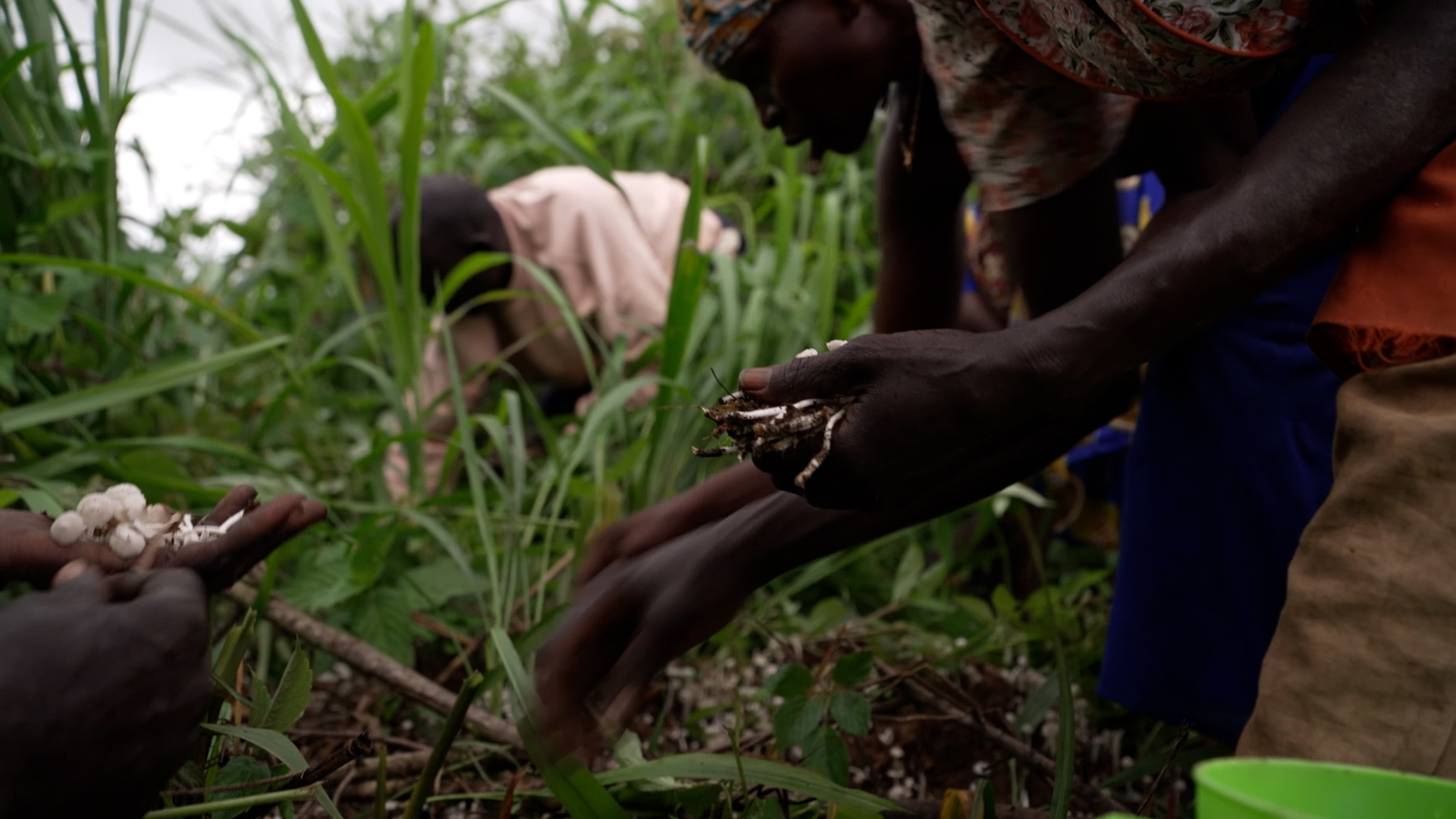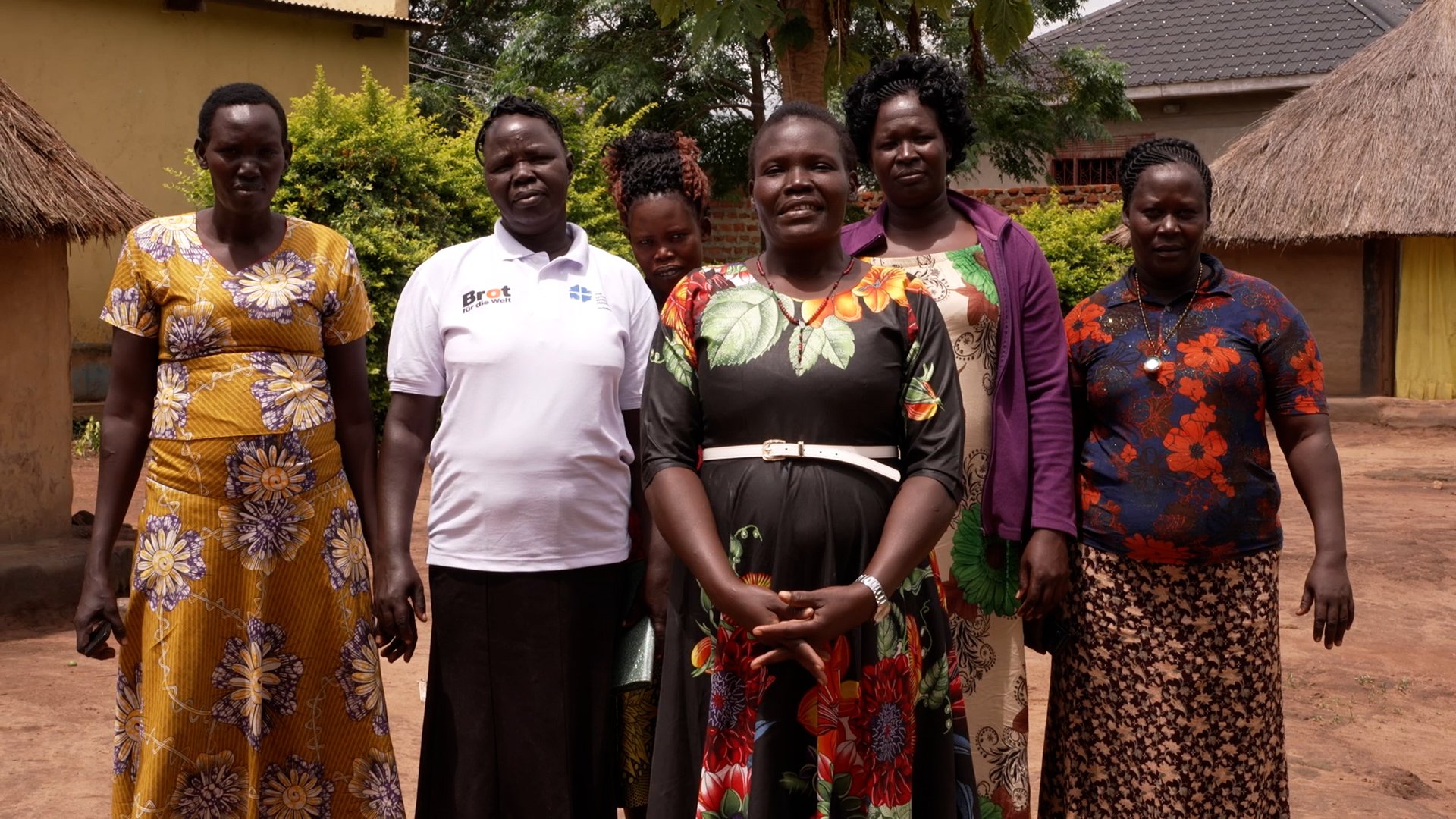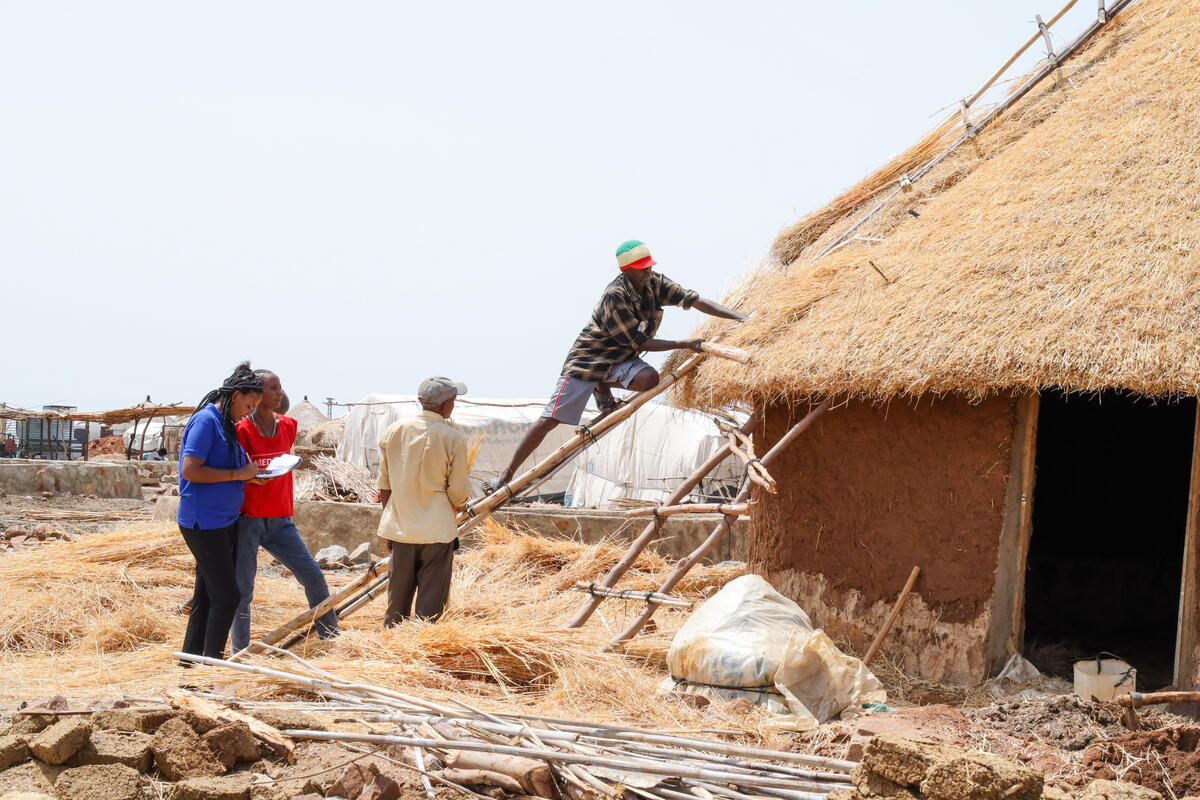Restoring damaged homes for Iraqi returnees and internally displaced people
Restoring damaged homes for Iraqi returnees and internally displaced people

MOSUL, Iraq, December 30 (UNHCR) - In the summer of 2007, Amina Hussein and her family decided to sleep on the roof of their two-storey home in the northern Iraqi city of Mosul to escape the stifling heat.
The next thing she remembers is waking up in hospital and finding "my two daughters and husband beside me weeping." The 35-year-old soon realized why. A bomb had detonated near her house, killing her five-year-old daughter. Amina lost both her legs.
Her house in south-east Mosul's Al-Wehda quarter was badly damaged and the surviving family members decided to flee from the largely inter-ethnic violence that was shaking the city. A series of moves took their toll on Amina and the family ultimately decided to return to Al-Wehda.
Nothing can bring back her beloved daughter but today Amina and her family are once more living in their home, which was restored under a UNHCR programme funded by the European Commission (EC). The 6 million euro project has helped hundreds of Iraqi returnees to rebuild their homes.
"There were a lot of bad memories in the house and it was unsafe to live in this quarter of the city," Amina explained. "Yet it was our neighbourhood and it is better than the other areas we fled to." The renovation work was carried out earlier this year by REACH - one of UNHCR's local implementing partners.
Ahmad Mohammed is another Mosul beneficiary of the shelter programme. The 40-year-old father of six used to sell vegetables on a street in an eastern district of the city until he was left paralysed when a suicide bomber blew himself up nearby. Ahmad's house was damaged in the blast.
Like Amina, he left for a safer area. "I had to avoid more explosions and save my children," he said. But he also found it difficult to adapt in areas where it was hard to find drinking water, medical care and proper shelter.
He returned to his damaged home late last year and was then selected by the UNHCR shelter programme. The builders started reconstruction of his house last October. "The first time I saw my renovated house [in late November], I couldn't believe it. God knows at that moment how secure I felt," Ahmad said.
The EC-funded project was launched at the beginning of this year and will continue through 2010. It consists of shelter rehabilitation, water and sanitation projects in shelter programme areas and support to two protection and assistance centres in Basra and Erbil which provide legal assistance to internally displaced people as well as returnees.
Work to repair or rebuild some 1,800 homes in seven Iraqi governorates was carried out in 2009. Seven water projects in southern Iraq have also been completed. "Support to displaced people and returnees will help pave the way to normality in Iraq, and will continue in 2010 and beyond," said Jobst von Kirchmann, head of Iraq Cooperation of the European Union delegation.
This project is part of UNHCR's emergency shelter programme for 2009 and 2010. Under the 2009 programme UNHCR has rehabilitated more than 10,000 shelters while it aims to double this figure next year. EC funds are covering 20 per cent of the total shelter costs.
Improvement of basic services such as water sanitation in shelter rehabilitated areas will also continue in 2010, as will UNHCR's network of protection and assistance centres in Iraq. "Needs are immense in Iraq. We are trying to assist as much as we can with the funds made available by donors," said Daniel Endres, UNHCR's representative in Iraq.
*All names have been changed for protection reasons
By Maha Sidky in Mosul, Iraq








